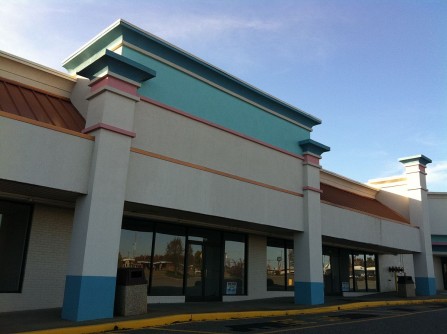With self-interest properly understood, a business becomes more than a business and a customer more than just a customer; their relationship nurtures great philanthropic opportunity.
In Professor Jerry Weinberger’s recent article “It Takes a Certain Kind of Village,” published in City Journal (Winter 2014), he expresses gratitude for the positive social, moral, and economic benefits of vibrant, voluntary community organizations. Almost immediately, Weinberger acknowledges varying models of “villages,” and argues that a properly ordered community encouraging “neighborliness and sociality” will most fully flourish. Using his own neighborhood as the paragon of community properly understood, Weinberger outlines the palpable sense of camaraderie embedded within his Capitol Hill neighborhood (in Washington, DC) by narrating on the community foundations, local organizations, and overall conviviality of the area. Interestingly enough, the author argues that this communal network did not arise from “an imperative to love [one’s] neighbor,” but, instead, it was rooted in mutual profit that eventually inculcated gregariousness and unity. Aptly summarizing this position, Weinberger states:
Our neighborhood, in other words, is not a village in the anthropological sense of being rooted in folkways and time immemorial. Nor is it a village of social-justice do-gooding coerced by taxes and executed by anonymous bureaucrats. It no more springs from custom than it does from abstract moral intention. Rather, it’s closer to what Tocqueville saw in America: neighborliness and sociality, and thus morality, based on self-interest properly understood.
Illustrating this Tocquevillean self-interest properly understood best, Weinberger recounts a story centering on Frager’s, the local hardware store. Described as a “long-loved neighborhood institution,” Weinberger avows, “everybody goes to Frager’s”; the store’s expansive inventory and knowledgeable service made it an indispensable local establishment. Unfortunately, in the summer of 2013, a fire “destroyed” Frager’s. Weinberger’s account celebrates the community’s aid to the disaster-stricken business – neighboring businesses offered jobs to affected Frager’s employees, private organizations held fundraisers like concerts and plays to support both the company and its employees, and neighbors provided services to help employees gain access to unemployment insurance. While Frager’s past year has certainly been struck with tragedy, the community outpouring in recovery efforts has evidenced that self-interest properly understood inculcates neighborly virtues. In other words, community vitality, albeit promoted by practicality, renders social morality.
Weinberg’s account, which is certainly worth reading, addresses the nexus between social relationships and philanthropy; neighborliness and scope; and profit and charity. From his journal piece, it appears there are three qualities that qualify a neighborhood to be a “certain kind of village.” First, there is a subtle emphasis on voluntary relations. Although many of the community’s relations are out of material necessity (like going to the local bank or the fish market, etc), the depth of the relationship is essentially voluntary. Additionally, the organizations started to provide charity to Frager’s were entirely voluntary. Second, the scope of the village seems to be a major determinant in the closeness of neighbors. For example, Weinberg purposefully introduces the mom-and-pop shops in his neighborhood; since the definite scope of the business was the neighborhood, the neighborhood seems to reciprocate the focus. Third, the “certain kind of village” has not abandoned material self-interest. However, this village does not solely rely on self-interest either; instead, a balance is struck where both self-interest and sociality can thrive. Without these conditions, the philanthropy toward Frager’s may not have culminated. By living in a community with an emphasis on voluntary relations, acknowledgement of scope, and properly understood self-interest, general welfare at the local level is encouraged, not to mention in the most efficient and effective way.
Frager’s website summarizes the importance of local philanthropy best:
Most of all we want to thank you--our friends, neighbors, and customers here in the community--for the outpouring of concern and commitment you have shown us. Your energy and interest in helping rebuild has reminded us what a unique place Frager’s has been in your lives and gives us real momentum to work on rebuilding. All those hugs have been especially important. We’ve needed every single one of them.
With self-interest properly understood, a business becomes more than a business and a customer more than just a customer; their relationship nurtures great philanthropic opportunity.






